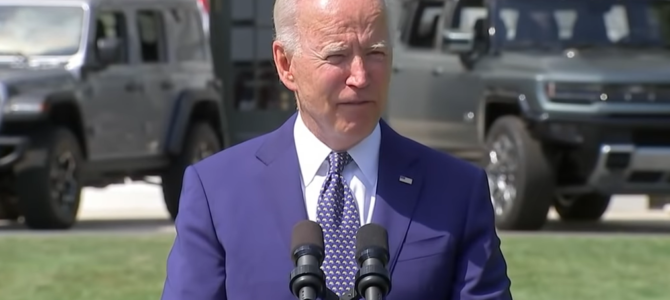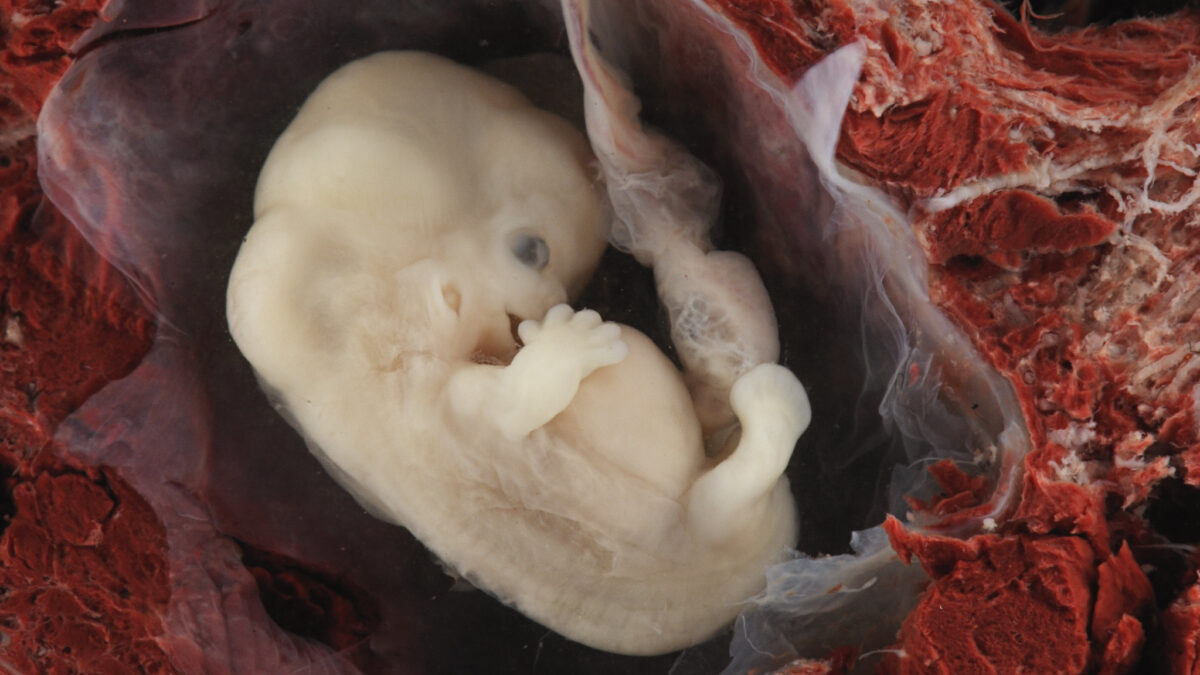
President Joe Biden announced plans Thursday to push auto sales to be 50 percent electric by 2030 with new regulations, as part of the administration’s effort to promote cleaner energy.
“There [is] a vision of the future that is now beginning to happen,” Biden said at the White House. “A future of the automobile industry that is electric. Battery electric, plug-in, hybrid electric, fuel cell electric, it’s electric and there’s no turning back.”
That future however, may also feature swelling American reliance on one of its greatest overseas adversaries: China.
Less than five percent of all new cars on the U.S. market were purely electric vehicles and less than four percent were plug-in hybrids as of June, according to the Energy Department’s Argonne National Laboratory. Not only will the government-manufactured shift to up that number by 12 times require massive state subsidies for a slow-growing industry, as Biden promised, but it will exacerbate American dependence on Chinese mineral production to make the car batteries needed.
According to the New York Times, China makes “70 to 80 percent of the world’s battery chemicals, battery anodes and battery cells,” and dominates the market for electric motor magnets.
“China controls the cards in the battery supply chain,” Vivas Kumar, the former Tesla manager of battery materials, told the paper in February.
Meanwhile, the Unites States lags behind when it comes to even mining its own minerals such as lithium and cobalt, let alone processing them at home. While both are more common components of electric cars, the Chinese also remain dominant in the extraction and refinement of the 17 rare earth minerals, some of which are in the batteries too.
“The Middle East has oil, and China has rare earth,” said former Chinese Communist Party Leader Deng Xiaoping in 1992, as Beijing ramped up production to play the long game — which is now bearing fruit. Since then, China has outpaced the United States as the world’s largest producer of rare minerals, raising production by 500 percent, according to the Wyoming Mining Association.
“The [electric vehicle] industry can’t exist without China, and there is no plan to displace China as the supplier of these minerals,” former Trump administration EPA transition team member and founder of “JunkScience” Steve Milloy told The Federalist, adding that Biden’s latest initiative orders more dependency on Chinese imports.
Milloy is skeptical the electric vehicle industry will even take off with a 50 percent share of the car market altogether. He argues their high price and inefficiency will lead consumers to embrace their use far more slowly than the 2030 timeline suggests, if not reject them entirely.
The Biden administration is not blind to the dominance of Chinese mining. At his electric vehicle announcement Thursday, the president acknowledged the United States was in competition with China and its stranglehold on the world’s battery supply.
“Right now, China’s leading the race,” Biden said. The electric car market has also grown far more and far faster in China than in the U.S., according to the Pew Research Center.
“And here’s the deal,” the president continued, “our national labs in America, our universities, our automakers, led in the development of this technology. We lead in developing this technology, and there’s no reason why we can’t reclaim that leadership and lead again.”
Biden said nothing about mining however, as the administration fills with radical environmental leftists who aim to lock up natural resources on federal land. The dramatic increase in battery demand that would accompany making 50 percent of new cars electric is a big win for Beijing.
The United States could reclaim its mineral dominance if it tapped into its own vast riches, unreachable by the cascade of burdensome regulation standing in the way of development. The short 6-minute video from Kite & Key Media sums up the entire debacle below:
Even if the lower 48 are kept off limits, Alaskan minerals could be mined to erase American dependence on Chinese supply, with lawmakers in the Republican state welcoming development.
“Experts predict a nearly 500 percent increase in mineral demand created by the push to decarbonize the world. Alaska is the place to find a responsible way to meet this demand,” wrote Alaskan Republican Gov. Mike Dunleavy in the Wall Street Journal three months ago. “No major mining accident has occurred in Alaska, yet the U.S. continues to sources its minerals from the Congo, South Africa and China while Washington regulators deny permits to projects on state of Alaska lands designed for mining.”
China, meanwhile, has made no secret of its plans to exploit American dependence on its mineral operations. The Wall Street Journal reported on a 2019 Beijing-funded report on rare-earth policy, which wrote, “China will not rule out using rare earth exports as leverage to deal with” a U.S.-China trade war.
With other nations, China already has weaponized its supply-chain power. In 2010, the country blocked rare-earth mineral exports to Japan, a developed but resource-poor country which relied heavily on the Chinese products.
Federalist Senior Contributor Helen Raleigh, an author and expert on Chinese affairs, chronicled the Japanese response, in which the government sought to diversify its source of minerals and drive innovation to encourage entrepreneurs to find substitute material.
In an interview, Raleigh emphasized that, while China is the world’s supplier of rare-earth minerals, it is not home to the most reserves, and the United States could find alternative production with an open look inward at its own supply which is mined far more cleanly and safely.
“Chinese dominance is in production and processing, not the world’s largest deposits,” Raleigh said.
While the Biden administration began to take steps in April to secure domestic supply for rare-earth minerals, Raleigh said the plans so far lacked “teeth” because “they focus on short-term optics,” such as initiatives to make 50 percent of the U.S. auto fleet electric within 10 years.
“We shouldn’t be so short-sighted,” Raleigh said, considering the Chinese plotted their dominance in the mineral arena decades ago.
In May, Reuters reported Biden was looking to Brazil, Canada, and Australia as potential sources for rare-earth minerals, as opposed to expanding America’s own mines to tap into its own reserves with its own labor.
Milloy said the issue with that proposal, aside from generating jobs abroad which could be available at home, is that neither country is a known host to resources as vast as those in the United States.
“We can’t just demand that Australia, Canada, [and] Brazil produce these for us,” Milloy said.









